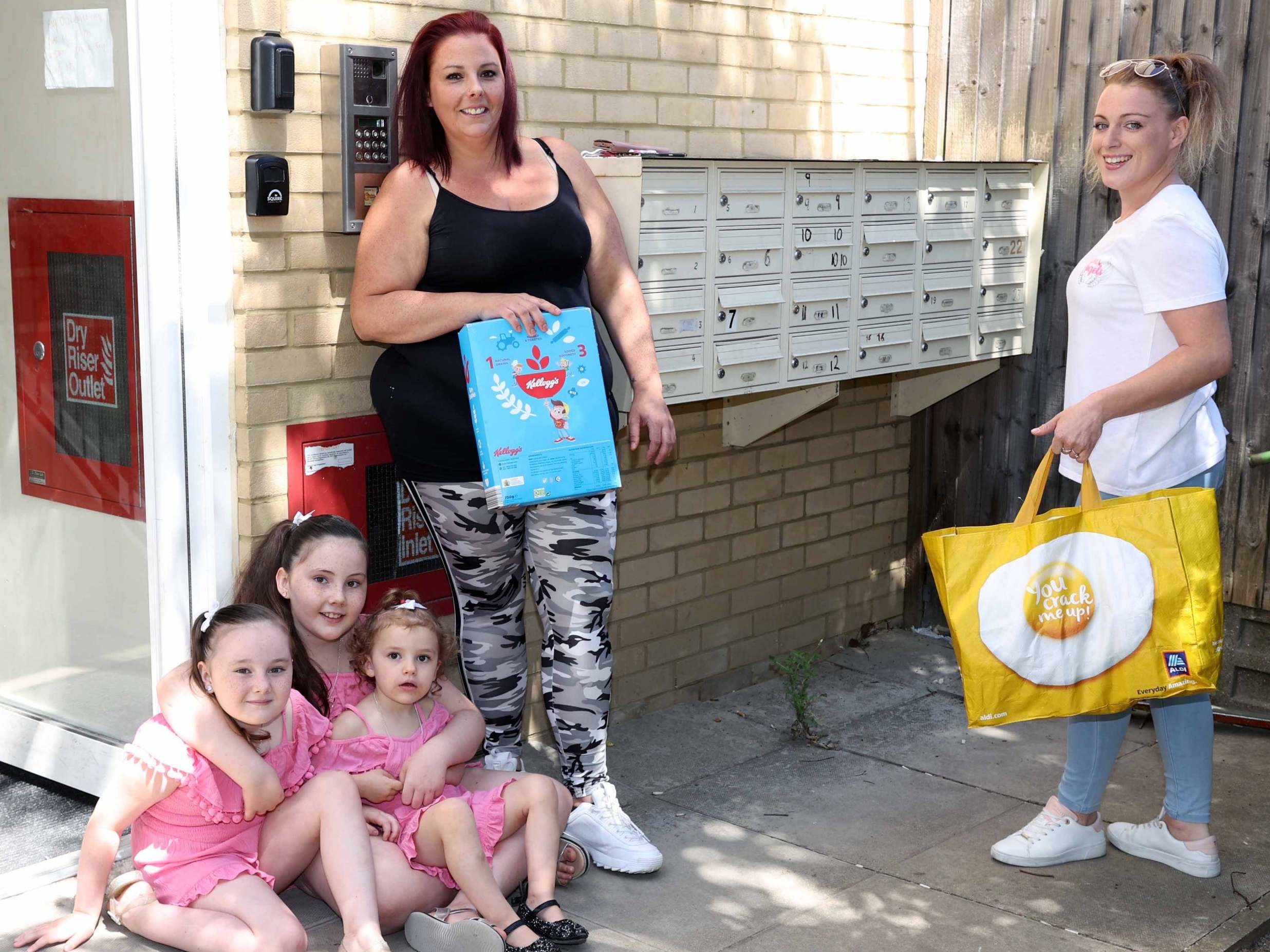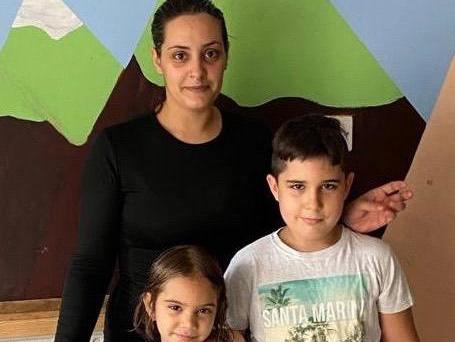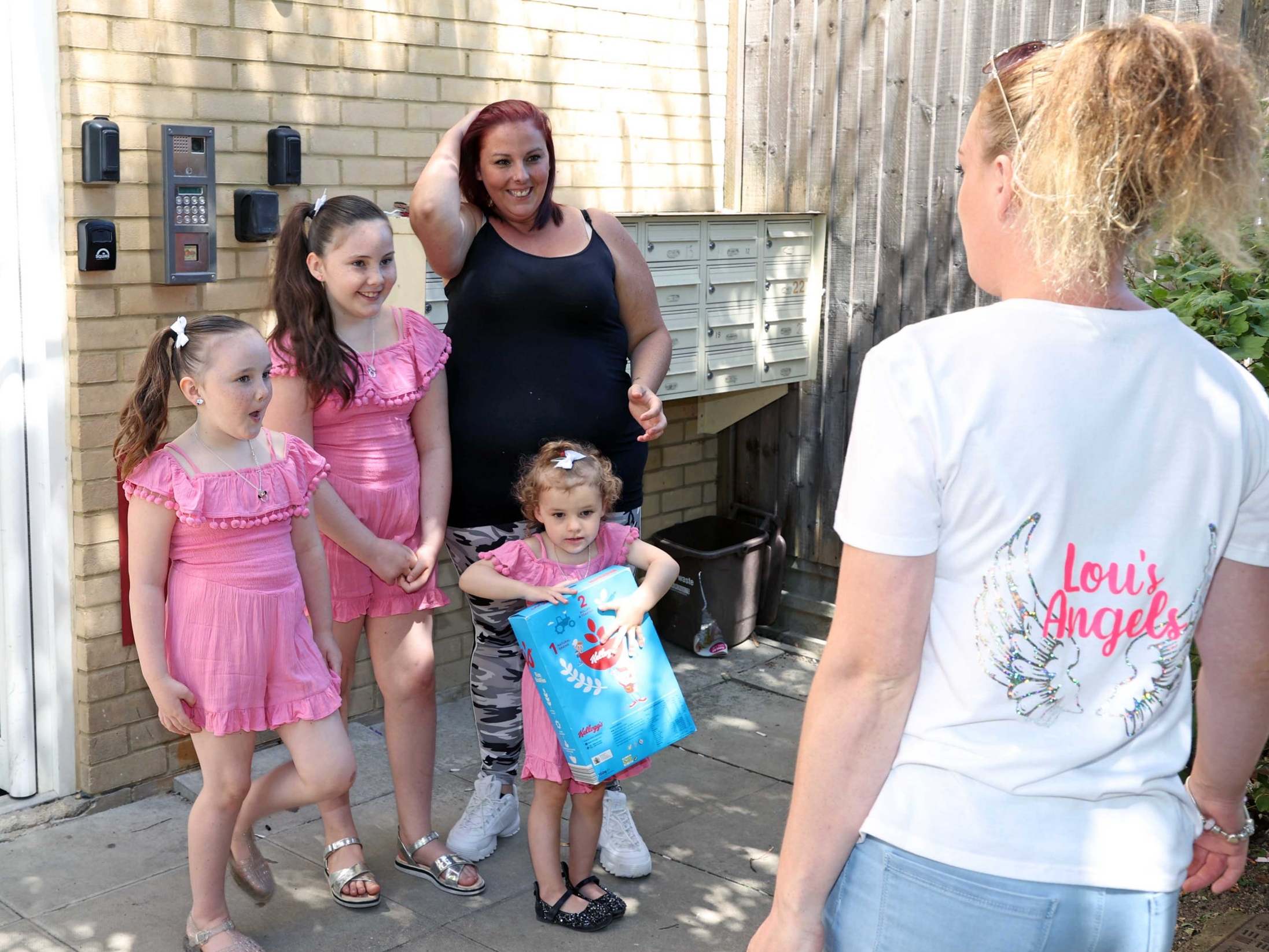‘I don’t mind going hungry if my kids can eat’: Families reveal struggle to afford food during lockdown
Help the Hungry: Parents face terrible choice between putting food on the table and paying bills, as campaign gets emergency supplies out to people in dire financial need

Your support helps us to tell the story
From reproductive rights to climate change to Big Tech, The Independent is on the ground when the story is developing. Whether it's investigating the financials of Elon Musk's pro-Trump PAC or producing our latest documentary, 'The A Word', which shines a light on the American women fighting for reproductive rights, we know how important it is to parse out the facts from the messaging.
At such a critical moment in US history, we need reporters on the ground. Your donation allows us to keep sending journalists to speak to both sides of the story.
The Independent is trusted by Americans across the entire political spectrum. And unlike many other quality news outlets, we choose not to lock Americans out of our reporting and analysis with paywalls. We believe quality journalism should be available to everyone, paid for by those who can afford it.
Your support makes all the difference.Parents have spoken about the terrible toll the coronavirus pandemic is taking on family life, as the ongoing lockdown causes levels of hardship many in Britain have never experienced before.
While job losses have pushed some into debt and poverty for the first time, parents struggling to get by before the crisis have found making ends meet each week has become almost impossible.
One mother told The Independent she has gone without food for several days to make sure her children have enough to eat, while another talked about being forced to choose between food or heating the family home.
Paula Sarri-Gonzalez, a 29-year-old single mother with three children under the age of 10, has struggled financially since losing her job as a restaurant chef last year.
The lockdown has made life even harder by pushing up the amount spent on electricity and gas at her flat in northwest London. After paying rent and all her bills from the universal credit she receives at the beginning of the month, she now finds she has just £4.30 left over for food and nappies for the rest of the month.
So she is almost entirely dependent on school vouchers available for her oldest two children (£15 per child per week) to buy absolute essentials, and one weekly food package dropped off by the Sufra food bank.
“I don’t mind going hungry sometimes, so long as my kids have food,” said Ms Sarri-Gonzalez. “Sometimes I might have just one main meal for myself in a day. There was one point during lockdown I didn’t manage to eat anything for myself for two days, almost three days. But I always set the table for the children – I keep things as normal as possible for them.”
“It’s so difficult at the moment. So stressful. I’m hoping when the kids go back to school later in the year I can go back to work and make things easier somehow.”

The Independent’s Help the Hungry campaign appeal partner The Felix Project has quadrupled the volume of surplus food it gets out to people in need since the crisis began.
The work remains as urgent than ever. The most recent YouGov poll for the Food Foundation charity shows over 1.5 million people in households with children have been unable to access food for economic reasons during the lockdown.
The latest figures from The Trussell Trust show April was the busiest month ever for the network of food banks, with an 89 per cent increase in emergency parcels compared with the same month in 2019.
And the number of parcels provided for children has more than doubled, while almost twice as many families with children are receiving them (a 95 per cent rise).
Dr Rachel Loopstra, lecturer in nutrition at King’s College London, said: “It’s clear from the data, as well as from trends in foodbank use, that families with children are really struggling right now. Watching parents struggle to put food on the table and go without food themselves is devastating.”
Rebecca Archer and her partner – who have three girls aged eight, six and three at home in London’s High Barnet – have found it difficult to afford enough food during lockdown. “The shopping I do is costing a lot more with them at home all the time,” she said.
Once the bills are paid and the main weekly shop is done on a Monday, the couple finds they have about £50 left to get through the week – about half the amount they usually had before the pandemic hit.
The family has recently taken advantage of two £15-a-week school vouchers they get for their two oldest girls, and receive some cooked meals from their neighbour Katie-Louise Barber – a volunteer delivering food using The Felix Project’s supplies.
“It’s been a real strain. Thinking and worrying about money all the time isn’t easy,” said Ms Archer. “I never thought I’d be worrying about having enough for the children to eat. There was one point we just didn’t have enough for the pre-paid gas meter, so we had to go without that for more than a week.”

The Trussell Trust, which runs the country’s biggest network of food banks, has warned food charities cannot cope “indefinitely” with the huge spike in demand for help caused by the pandemic.
A coalition of anti-poverty charities had written to the chancellor asking for an emergency income support scheme that would increase child benefits and end the five-week wait for initial universal credit payments.
Anthony Cotterill, leader of the Salvation Army in the UK, warned: “It’s years since we have seen poverty to be such a real and present danger for so many people. We are approaching a poverty tipping point.”
The Independent is encouraging readers to help groups that are trying to feed the hungry during the crisis. Find out how you can help here. Follow this link to donate to our campaign in London, in partnership with the Evening Standard.